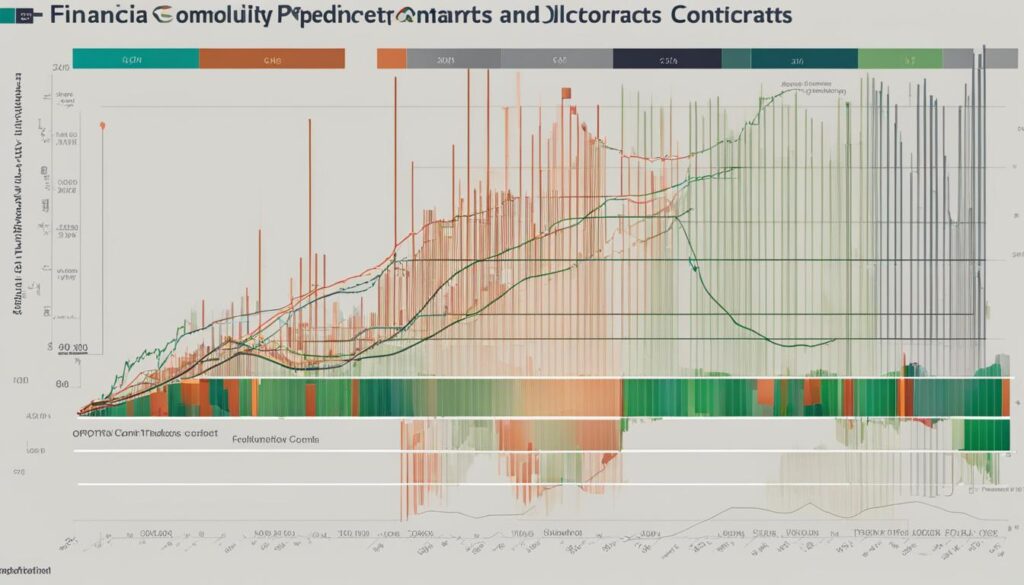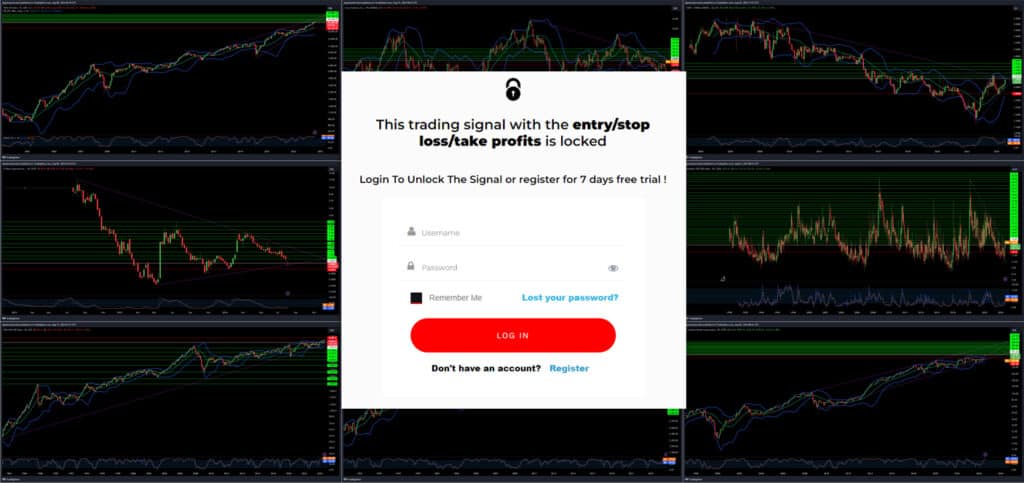Hedging is a crucial element of risk management in commodity trading. As a trader, I understand the significance of implementing effective hedging strategies to protect investments and navigate the complexities of the market.
Commodity trading involves inherent risks, including price volatility, supply disruptions, and quality differentials. To mitigate these risks, traders employ various hedging strategies tailored to their operational requirements and risk tolerance.
Key Takeaways
- Implementing hedging strategies is vital for managing risks in commodity trading.
- Hedging strategies include futures contracts, options contracts, physical forward contracts, inventory management, quality and grading controls, and supply chain diversification.
- Each hedging strategy serves a specific purpose in mitigating risks associated with price volatility, supply disruptions, and quality differentials.
- Traders should evaluate their risk tolerance and operational requirements to choose the most suitable hedging strategy.
- Mastering hedging strategies allows traders to optimize profitability and navigate the challenges of commodity trading with confidence.
The Role of Futures Contracts in Hedging Commodity Trading
In commodity trading, hedging is crucial for managing risks and protecting investments. One effective strategy for hedging physical commodities operations is through the use of futures contracts. Futures contracts allow traders to lock in prices for future delivery of the physical commodity, providing them with certainty and protection against price fluctuations.
Futures contracts are standardized agreements that specify the quantity, quality, and delivery date of the underlying commodity. By entering into these contracts, traders can hedge their positions and mitigate the risks associated with price volatility in the commodity market. This allows them to plan their operations and make informed decisions based on the agreed-upon price.
With futures contracts, traders can secure a known price for their future commodity transactions, which is particularly valuable in an unpredictable market. By eliminating the uncertainty of price fluctuations, traders can confidently manage their operations and protect their investments.
“Futures contracts allow traders to lock in prices for future delivery of the physical commodity, providing them with certainty and protection against price fluctuations.”
Furthermore, futures contracts provide liquidity and a standardized marketplace for commodity trading. Traders can easily buy or sell futures contracts on exchanges, allowing them to enter or exit hedging positions as needed. This flexibility ensures that traders can adjust their positions in response to market conditions and effectively manage their risks.
To illustrate the role of futures contracts in hedging commodity trading, let’s consider the example of a wheat farmer. Suppose the farmer wants to protect against a potential drop in wheat prices before the harvest season. By entering into a futures contract to sell a specific quantity of wheat at a predetermined price, the farmer can ensure a minimum price for their wheat yield, even if market prices decline. This helps the farmer secure their revenue and mitigate the impact of price volatility.
| Name | Description |
|---|---|
| Futures Contract | A standardized agreement specifying the quantity, quality, and delivery date of an underlying commodity |
| Hedging | A risk management strategy used to protect against price fluctuations |
| Commodity Trading | Buying and selling of physical commodities such as agricultural products, energy, or metals |
The use of futures contracts in hedging commodity trading provides traders with a valuable tool to manage risks, ensure price predictability, and protect investments from market volatility. By effectively utilizing futures contracts, traders can navigate the challenges of commodity trading with confidence and optimize their profitability.
Using Options Contracts for Hedging Commodity Trading
Options contracts provide traders with a flexible tool for hedging their physical commodities operations in the volatile commodity trading market. With options, traders have the ability to manage their risks by employing either call options or put options to protect their positions from adverse price movements.
Call Options for Price Increases
Traders can use call options to hedge against potential price increases in the underlying commodity. A call option gives the holder the right, but not the obligation, to buy the commodity at a predetermined price within a specified timeframe. By purchasing call options, traders can secure the right to buy the commodity at a favorable price if its value rises, thus protecting their positions from potential losses.
Put Options for Price Declines
Conversely, put options can be utilized to hedge against price declines in the commodity market. By buying put options, traders acquire the right, but not the obligation, to sell the commodity at a predetermined price within a specific period. This strategy allows traders to limit their potential losses by selling the commodity at a higher price than its market value, should its price decrease.
“Options contracts provide traders with the flexibility to protect their positions from adverse price movements and limit potential losses.”
The flexibility offered by options contracts enables traders to respond effectively to changing market conditions and manage their hedging strategies based on their risk tolerance and market expectations. By utilizing options, traders can safeguard their investments in commodity trading and optimize their profitability.
To visually demonstrate the benefits of using options contracts for hedging commodity trading, refer to the table below:
| Hedging Strategy | Benefits |
|---|---|
| Call Options | Protection against potential price increases |
| Put Options | Protection against price declines |
By employing options contracts, traders have the flexibility to adapt their hedging strategies according to their specific needs and market conditions. Options provide a valuable tool for managing risk in commodity trading, allowing traders to protect their positions and limit potential losses based on their price expectations.
The Benefits of Physical Forward Contracts in Commodity Trading
In commodity trading, physical forward contracts offer numerous benefits for hedging against potential price volatility and securing future transactions at favorable prices. These contracts, which involve agreements between buyers and sellers, provide stability and predictability in commodity trading, allowing traders to effectively manage their risks and protect their investments.
One of the primary advantages of physical forward contracts is the ability to lock in a specific quantity of the physical commodity at a predetermined price and future date. This provides traders with a level of certainty and security, as they can establish fixed terms for their transactions. By entering into these contracts, traders can hedge against potential price fluctuations, ensuring that they are protected from unexpected market movements.
Moreover, physical forward contracts enable traders to plan their operations more efficiently. By knowing the price and delivery terms in advance, traders can make informed decisions about their commodity inventory, production, and sales strategies. This allows for better resource allocation and minimizes the impact of uncertain market conditions.
Additionally, physical forward contracts offer the flexibility to customize the terms of the agreement to suit the specific needs of the traders. Unlike standardized futures contracts, physical forward contracts can be tailored to address specific requirements, such as unique delivery locations or product specifications. This level of customization enhances the effectiveness of the hedging strategy and ensures that the contract aligns perfectly with the trader’s objectives.
Another advantage of physical forward contracts is their simplicity and ease of use. Traders can negotiate directly with counterparties, establishing mutually beneficial terms and conditions. This direct interaction allows for greater control over the hedging process, reducing reliance on intermediaries and minimizing transaction costs.
In conclusion, physical forward contracts are a valuable tool for hedging in commodity trading. They provide stability, predictability, and flexibility, allowing traders to effectively manage their risks and protect their investments. By utilizing physical forward contracts, traders can navigate the challenges of price volatility and secure favorable transactions in the dynamic commodity market.
Inventory Management as a Hedging Strategy in Commodity Trading
Effective inventory management plays a crucial role in hedging physical commodities operations. By closely monitoring inventory levels, traders can strategically adjust their positions based on market conditions, optimizing the timing of buying or selling physical commodities. This proactive approach helps reduce exposure to price fluctuations and enhances risk management.
Efficient inventory management ensures that traders maintain the right amount of inventory at the right time, minimizing the risks associated with inventory holding costs and market volatility. By carefully analyzing demand and supply patterns, traders can make informed decisions about inventory replenishment and order fulfillment, thereby optimizing their hedging strategies.
One key aspect of inventory management in commodity trading is to establish a comprehensive inventory tracking system. This system should allow for real-time monitoring of inventory levels, tracking the movement of commodities from procurement to sale. By having accurate and up-to-date information, traders can make timely decisions to adjust their positions, taking advantage of favorable market conditions or mitigating potential risks.
Benefits of Effective Inventory Management
Implementing effective inventory management practices in commodity trading offers several benefits:
- Optimized Cost Control: By managing inventory levels efficiently, traders can minimize holding costs associated with storage, insurance, and obsolescence. This leads to improved financial performance and better allocation of resources.
- Enhanced Customer Service: Maintaining optimal inventory levels ensures that traders can fulfill customer orders promptly, avoiding stockouts and delays. This helps enhance customer satisfaction and loyalty.
- Reduced Risk: Through inventory management, traders can reduce the risk of excess or obsolete inventory, as well as the risk of stockouts. This enables them to navigate market fluctuations more effectively.
Overall, effective inventory management serves as a valuable hedging strategy in commodity trading, allowing traders to optimize their operations, mitigate risks, and maximize profitability.
“Efficient inventory management ensures that traders have the right amount of inventory at the right time, minimizing the risks associated with inventory holding costs and market volatility.”
Quality and Grading Controls in Hedging Commodity Trading
Implementing rigorous quality controls and maintaining strict grading controls is vital for effectively hedging physical commodities operations. When it comes to commodity trading, the quality of the commodity can significantly impact its value. Therefore, it is crucial for traders to ensure that their commodities meet specified quality standards in order to minimize risks and price differentials.
By implementing robust quality control measures, traders can hedge against potential issues related to the quality of their commodities. This involves establishing thorough quality control processes and procedures, which may include inspections, laboratory testing, and certifications. These controls help identify and address quality deficiencies, ensuring that the commodities meet the required standards and specifications.
In addition to quality controls, maintaining a consistent grading system is equally important. Grading allows traders to assess and classify commodities based on their quality characteristics, such as size, color, weight, and purity. By implementing a standardized grading system, traders can ensure transparency and fairness in the trading process.
A robust grading system helps minimize price differentials caused by variations in quality, allowing traders to receive fair prices for their commodities. Traders can use the grading information to negotiate contracts, determine pricing structures, and assess the value of their commodities in the market.
Overall, quality and grading controls play a crucial role in hedging commodity trading operations. By implementing stringent quality control measures and maintaining consistent grading systems, traders can mitigate risks and protect their investments. These controls ensure that the commodities meet the desired specifications and enable traders to make informed trading decisions.
Conclusion
Hedging is a fundamental aspect of commodity trading that allows me to effectively manage risks and protect my investments. By implementing various hedging strategies such as futures contracts, options contracts, physical forward contracts, inventory management, and quality and grading controls, I can mitigate the risks associated with price volatility, supply disruptions, and quality differentials.
Each hedging technique serves a specific purpose in managing risks, and it is crucial for me to carefully evaluate my risk tolerance and operational requirements to determine the most suitable strategy for my commodity trading activities. By mastering these hedging strategies, I can navigate the challenges of the market with confidence and optimize my profitability.
Commodity trading is a dynamic and unpredictable environment, but with a solid understanding of hedging strategies and risk management, I can effectively protect my positions and make informed decisions. It is important for me to stay up-to-date with market trends, monitor inventory levels, and maintain strict quality control measures to ensure the success of my commodity trading ventures.
FAQ
What is hedging in commodity trading?
Hedging in commodity trading is the practice of employing various strategies to manage risks associated with price volatility, supply disruptions, and quality differentials. Traders use hedging techniques to protect their positions and investments from adverse market movements.
What are futures contracts and how do they help in hedging commodity trading?
Futures contracts are standardized agreements that allow traders to lock in prices for future delivery of a physical commodity. By entering into futures contracts, traders can hedge their positions and protect themselves against price fluctuations, ensuring predictability in their operations.
How do options contracts play a role in hedging commodity trading?
Options contracts provide flexibility in hedging commodity trading. Traders can use call options to hedge against potential price increases or put options to hedge against price declines. Options give traders the right, but not the obligation, to buy or sell the underlying commodity within a specified timeframe.
What are physical forward contracts and how do they benefit commodity trading?
Physical forward contracts involve agreements between buyers and sellers to deliver or receive a specific quantity of a physical commodity at a predetermined price and future date. These contracts allow traders to hedge against potential price volatility and secure future transactions at favorable prices, providing stability and predictability in commodity trading.
How does inventory management serve as a hedging strategy in commodity trading?
Effective inventory management is crucial for hedging commodity trading. By closely monitoring inventory levels, traders can adjust their positions based on market conditions, optimizing the timing of buying or selling physical commodities and reducing exposure to price fluctuations. Efficient inventory management minimizes risks and ensures traders have the right amount of inventory at the right time.
What is the importance of quality and grading controls in hedging commodity trading?
Rigorous quality and grading controls are vital for hedging commodity trading, especially when the quality of the commodity significantly impacts its value. Implementing strict quality control measures and maintaining a consistent grading system help protect investments and ensure fair prices for commodities, minimizing risks and price differentials.
Why is hedging important in commodity trading and how can traders optimize profitability?
Hedging is essential in commodity trading to effectively manage risks and protect investments. By implementing strategies such as futures contracts, options contracts, physical forward contracts, inventory management, and quality and grading controls, traders can mitigate risks associated with price volatility, supply disruptions, and quality differentials. Traders should carefully evaluate their risk tolerance and operational requirements to choose the most suitable hedging strategy, thus optimizing profitability.
Source Links
- https://fastercapital.com/content/Hedging-strategy–Mastering-Hedging-Strategies–Longhedge-Essentials.html
- https://gocardless.com/guides/posts/how-do-hedging-strategies-work/
- https://www.linkedin.com/pulse/effective-strategies-hedge-physical-commodities-operations-baev
Disclaimer
All information on this website is of a general nature. The information is not adapted to conditions that are specific to your person or entity. The information provided can not be considered as personal, professional or legal advice or investment advice to the user.
This website and all information is intended for educational purposes only and does not give financial advice. Signal Mastermind Signals is not a service to provide legal and financial advice; any information provided here is only the personal opinion of the author (not advice or financial advice in any sense, and in the sense of any act, ordinance or law of any country) and must not be used for financial activities. Signal Mastermind Signals does not offer, operate or provide financial, brokerage, commercial or investment services and is not a financial advisor. Rather, Signal Mastermind Signals is an educational site and a platform for exchanging Forex information. Whenever information is disclosed, whether express or implied, about profit or revenue, it is not a guarantee. No method or trading system ensures that it will generate a profit, so always remember that trade can lead to a loss. Trading responsibility, whether resulting in profits or losses, is yours and you must agree not to hold Signal Mastermind Signals or other information providers that are responsible in any way whatsoever. The use of the system means that the user accepts Disclaimer and Terms of Use.
Signal Mastermind Signals is not represented as a registered investment consultant or brokerage dealer nor offers to buy or sell any of the financial instruments mentioned in the service offered.
While Signal Mastermind Signals believes that the content provided is accurate, there are no explicit or implied warranties of accuracy. The information provided is believed to be reliable; Signal Mastermind Signals does not guarantee the accuracy or completeness of the information provided. Third parties refer to Signal Mastermind Signals to provide technology and information if a third party fails, and then there is a risk that the information may be delayed or not delivered at all.
All information and comments contained on this website, including but not limited to, opinions, analyzes, news, prices, research, and general, do not constitute investment advice or an invitation to buy or sell any type of instrument. Signal Mastermind Signals assumes no responsibility for any loss or damage that may result, directly or indirectly, from the use or dependence on such information.
All information contained on this web site is a personal opinion or belief of the author. None of these data is a recommendation or financial advice in any sense, also within the meaning of any commercial act or law. Writers, publishers and affiliates of Signal Mastermind Signals are not responsible for your trading in any way.
The information and opinions contained in the site are provided for information only and for educational reasons, should never be considered as direct or indirect advice to open a trading account and / or invest money in Forex trading with any Forex company . Signal Mastermind Signals assumes no responsibility for any decisions taken by the user to create a merchant account with any of the brokers listed on this website. Anyone who decides to set up a trading account or use the services, free of charge or paid, to any of the Broker companies mentioned on this website, bears full responsibility for their actions.
Any institution that offers a service and is listed on this website, including forex brokers, financial companies and other institutions, is present only for informational purposes. All ratings, ratings, banners, reviews, or other information found for any of the above-mentioned institutions are provided in a strictly objective manner and according to the best possible reflection of the materials on the official website of the company.
Forex/CFD trading is potentially high risk and may not be suitable for all investors. The high level of leverage can work both for and against traders. Before each Forex/CFD investment, you should carefully consider your goals, past experience and risk level. The opinions and data contained on this site should not be considered as suggestions or advice for the sale or purchase of currency or other instruments. Past results do not show or guarantee future results.
Neither Signal Mastermind Signals nor its affiliates ensure the accuracy of the content provided on this Site. You explicitly agree that viewing, visiting or using this website is at your own risk.




